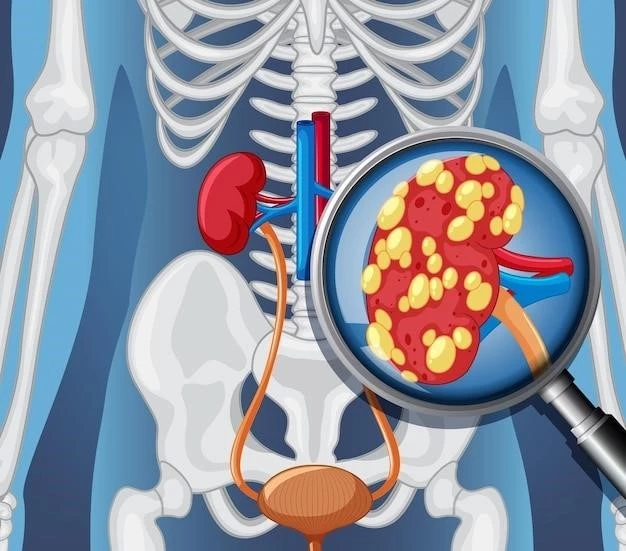Overview of Accessory Pancreas
Symptoms and Diagnosis of Accessory Pancreas
Treatment Options for Accessory Pancreas
Complications Associated with Accessory Pancreas
Surgical Interventions for Accessory Pancreas
Research and Advances in Accessory Pancreas
Lifestyle Management for Accessory Pancreas
Accessory Pancreas⁚ Frequently Asked Questions
Introduction to Accessory Pancreas
Definition and Background⁚ The accessory pancreas, also known as the aberrant pancreas, refers to additional pancreatic tissue separate from the main pancreas. This anatomical variation can have clinical implications.
Importance of Understanding Accessory Pancreas⁚ Recognizing the presence of accessory pancreas is crucial for accurate diagnosis and treatment of pancreatic disorders. Understanding its features can aid in avoiding potential complications.
Definition and Background
The definition of accessory pancreas pertains to ectopic pancreatic tissue distinct from the main pancreas. This anomaly may have varying presentations and poses diagnostic challenges in clinical settings. Understanding the background of this condition is essential for proper management and patient care.
Importance of Understanding Accessory Pancreas
Recognizing the significance of accessory pancreas is paramount in the context of pancreatic health. Proper understanding aids in accurate diagnosis, timely intervention, and prevention of potential complications. In the realm of gastroenterology, familiarity with this condition is integral for delivering optimal patient care.
Symptoms and Diagnosis of Accessory Pancreas
Common Symptoms⁚ Symptoms related to accessory pancreas may include abdominal pain, nausea, and digestive issues.
Diagnostic Procedures⁚ Diagnosis involves imaging studies like CT scans, MRI, and endoscopic ultrasound. Biopsy may be necessary for confirmation.
Common Symptoms Associated with Accessory Pancreas
Typical symptoms of accessory pancreas may manifest as abdominal discomfort, bloating, and indigestion. Additionally, patients might experience intermittent pain or digestive disturbances that necessitate thorough medical evaluation for accurate diagnosis and management.
Diagnostic Procedures for Identifying Accessory Pancreas
To identify accessory pancreas, healthcare providers employ diagnostic tools such as computed tomography (CT) scans, magnetic resonance imaging (MRI), and endoscopic ultrasound (EUS) to visualize the pancreatic tissue. In some cases, a biopsy may be necessary for definitive confirmation and accurate diagnosis.
Treatment Options for Accessory Pancreas
Conservative Management Approaches⁚ Non-surgical approaches like medication, dietary modifications, and regular monitoring may be recommended.
Surgical Treatment Options⁚ In cases of complications or symptomatic accessory pancreas, surgical intervention such as resection or removal of the abnormal tissue may be considered for therapeutic purposes.
Conservative Management Approaches
Conservative management for accessory pancreas involves non-invasive strategies such as medication to alleviate symptoms, dietary adjustments to support pancreatic health, and regular monitoring to track any changes in the condition. This approach aims to manage the accessory pancreas without the need for invasive procedures.
Surgical Treatment Options
Surgical treatment for accessory pancreas may involve procedures like resection to remove the additional pancreatic tissue. Surgery is considered in cases where conservative management is ineffective or when there are complications requiring intervention. The goal of surgical options is to address symptoms and prevent further issues associated with the accessory pancreas.
Complications Associated with Accessory Pancreas
Potential Complications⁚ Complications related to accessory pancreas may include pancreatitis, obstruction of the pancreatic ducts, or the development of cysts. These issues can lead to abdominal pain, digestive disturbances, and other significant health challenges.
Potential Complications Arising from Accessory Pancreas
The presence of an accessory pancreas may lead to complications such as inflammation, blockage of pancreatic ducts, or the formation of cysts. These complications can result in pain, impaired digestion, and potentially serious consequences that require medical intervention and management.
Risk Factors for Developing Complications
Potential risk factors for developing complications related to accessory pancreas include underlying pancreatic conditions, genetic predispositions, and anatomical variations. Additionally, lifestyle factors such as diet and habits may also influence the likelihood of complications arising from the presence of accessory pancreatic tissue.
Surgical Interventions for Accessory Pancreas
Types of Surgical Procedures⁚ Surgical interventions for accessory pancreas may involve resection or removal of the additional pancreatic tissue.
Outcomes and Recovery Process⁚ Patients undergoing surgery require post-operative care and monitoring to ensure optimal recovery and minimize potential complications. Adherence to medical guidance is crucial for a successful surgical outcome.
Types of Surgical Procedures for Accessory Pancreas
Common surgical procedures for accessory pancreas include partial pancreatectomy to remove a portion of the pancreas containing the additional tissue. Pancreaticoduodenectomy, known as the Whipple procedure, may be performed in cases where the accessory pancreas is located near the duodenum. Surgeons choose the surgical approach based on the location and extent of the abnormal pancreatic tissue.
Outcomes and Recovery Process Post-Surgery
After surgical intervention for accessory pancreas, patients undergo a recovery process involving hospital stay, pain management, and close monitoring for potential complications. The outcomes post-surgery depend on individual factors, adherence to post-operative instructions, and regular follow-up appointments to ensure proper healing and recovery.
Research and Advances in Accessory Pancreas
Current Studies and Findings⁚ Ongoing research focuses on better understanding the implications of accessory pancreas, exploring diagnostic advancements, and evaluating treatment efficacy.
Promising Advances⁚ Recent studies highlight innovative approaches such as minimally invasive surgical techniques and targeted therapies in the management of accessory pancreas anomalies.
Current Studies and Findings in the Field of Accessory Pancreas
Recent studies in the realm of accessory pancreas focus on genetic factors contributing to its development, refining imaging techniques for accurate diagnosis, and exploring the impact of accessory pancreas on pancreatic function. Findings aim to enhance medical knowledge and improve patient outcomes.
Promising Advances in Accessory Pancreas Research
Ongoing research is exploring novel treatment modalities like targeted therapy and precision medicine tailored to individual cases of accessory pancreas. Advances in imaging technologies and molecular diagnostics offer potential for early detection and personalized management strategies, paving the way for improved outcomes and quality of life for patients.
Lifestyle Management for Accessory Pancreas
Dietary Recommendations⁚ Individuals with accessory pancreas should follow a diet rich in fruits, vegetables, and lean proteins, while limiting processed foods and excessive fats.
Importance of Regular Exercise⁚ Engaging in regular physical activity can contribute to overall well-being and aid in maintaining a healthy weight, which is beneficial for managing accessory pancreas and reducing associated risks.
Dietary Recommendations for Individuals with Accessory Pancreas
For individuals with accessory pancreas, dietary guidelines suggest a balanced intake of nutrients, focusing on whole foods, fiber-rich sources, and adequate hydration. Avoiding excessive sugar, alcohol, and processed foods is key to supporting pancreatic health and minimizing digestive discomfort associated with the condition.
Importance of Regular Exercise and Healthy Habits
Regular exercise plays a vital role in managing accessory pancreas by promoting overall health, enhancing metabolic function, and reducing the risk of associated complications. Adopting healthy habits such as maintaining a balanced lifestyle, managing stress, and avoiding tobacco can contribute to optimal well-being and improve the quality of life for individuals with accessory pancreas.
Accessory Pancreas⁚ Frequently Asked Questions
Addressing Common Queries⁚ FAQs related to accessory pancreas cover topics like symptoms, diagnostic procedures, treatment options, and lifestyle recommendations.
Expert Insights⁚ Providing expert guidance on managing accessory pancreas empowers individuals with accurate information and reassurance regarding their condition. Access to reliable resources and healthcare professionals is essential for addressing concerns effectively.
Addressing Common Queries Related to Accessory Pancreas
Common queries regarding accessory pancreas include concerns about symptoms, diagnosis methods, potential complications, and suitable lifestyle adjustments. Addressing these questions with accurate information and personalized guidance is essential for individuals seeking clarity and understanding about this anatomical variation.

Expert Insights and Recommendations for Individuals Concerned about Accessory Pancreas
Expert insights provide valuable recommendations for individuals concerned about accessory pancreas, offering guidance on diagnosis, treatment options, lifestyle modifications, and the importance of regular follow-ups. Collaborating with healthcare professionals ensures comprehensive care and informed decision-making for optimal management of accessory pancreas.
